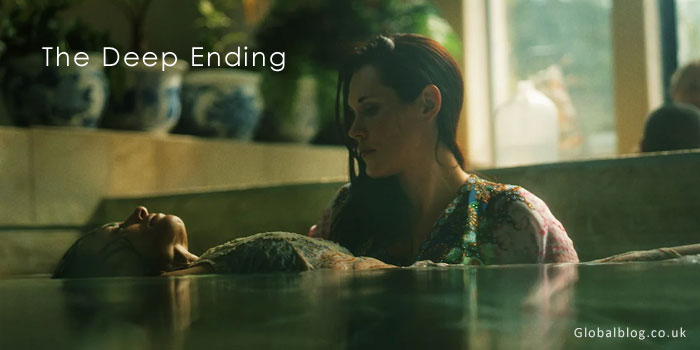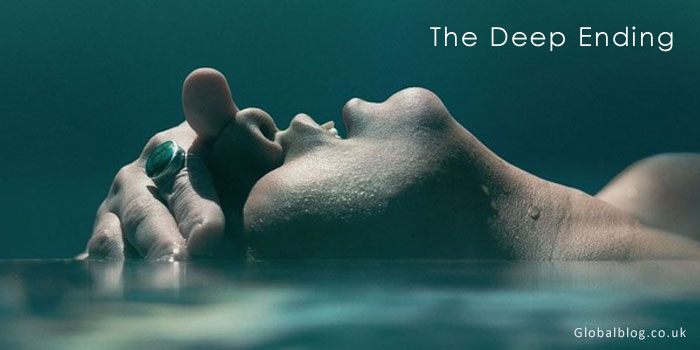Welcome to the fascinating world of the Deep Ending Entertainment, where narratives plunge into depths that challenge our perceptions and evoke profound emotions. This genre captivates audiences with its ability to explore complex themes, often leaving viewers questioning reality long after the credits roll. Whether it’s a haunting film, an evocative novel, or an immersive video game, deep endings can transform storytelling into a thought-provoking experience. Dive in as we unravel what makes this form of entertainment so compelling and influential in today’s society!
What is the Deep Ending Entertainment?
The Deep Ending Entertainment refers to narratives that culminate in unexpected, thought-provoking conclusions. These endings often provoke reflection and discussion, challenging audiences to rethink what they’ve experienced.
This genre transcends traditional storytelling by intertwining complex themes like morality, identity, and existentialism. It invites viewers or readers into a world where resolutions are not neatly packaged but instead leave lingering questions.
Characters may face moral dilemmas or confront harsh truths about life itself. The story’s climax often leads to ambiguity rather than closure.
In many cases, the emotional weight of these conclusions resonates deeply with audiences. This engagement encourages them to explore their interpretations long after they’ve finished watching or reading.
The Different Forms of The Deep Ending Entertainment
The Deep Ending Entertainment takes many shapes and forms. Each brings its own unique flavor to storytelling.
Films often lead the charge. They captivate audiences with unexpected twists, leaving viewers pondering long after credits roll. Think of films that challenge perceptions or provoke deep questions about morality and existence.
Television shows also play a significant role. Series like “The Sopranos” or “Westworld” weave intricate narratives that explore complex themes, making each episode feel like a philosophical exploration wrapped in drama.
Books offer another dimension altogether. Literary works can delve into the psychological depths of characters, presenting endings that are ambiguous yet thought-provoking, inviting readers to find their interpretations.
Video games have emerged as an interactive frontier for the Deep Ending experiences. Choices made by players can lead to multiple endings, ensuring every journey feels personal and impactful.
Each form has its strengths, contributing richly to this diverse landscape of entertainment that challenges our understanding of stories themselves.
How Deep Ending Entertainment has Evolved
The Deep Ending Entertainment has undergone significant transformation since its inception. Initially, it was characterized by ambiguous conclusions that left viewers pondering long after the credits rolled. Filmmakers embraced this richness, pushing boundaries and experimenting with narratives.
With the rise of streaming platforms, creators gained more freedom to explore unconventional storytelling techniques. Audiences now expect intricately woven plots that challenge traditional resolutions. This shift encourages filmmakers to devise endings that provoke thought rather than offer closure.
Diverse genres are also embracing the deep ending approach. From thrillers to romantic dramas, stories increasingly feature layers of complexity and moral ambiguity. This evolution reflects a societal craving for content that mirrors real-life uncertainties.
As technology advances, interactivity becomes another exciting frontier for The Deep Ending Entertainment. Viewers engage with narratives in novel ways, blurring lines between spectator and storyteller – ushering in an era where endings can change based on audience decisions.

The Impact of Deep Ending Entertainment on Society
The Deep Ending Entertainment has a profound way of shaping societal perceptions. It challenges viewers to confront uncomfortable truths, often sparking intense discussions that linger long after the credits roll.
By presenting moral dilemmas or ambiguous endings, it encourages critical thinking. Audiences find themselves questioning their beliefs and values. This genre pushes boundaries in storytelling, allowing for rich explorations of human psychology.
Moreover, The Deep Ending narratives reflect current social issues like mental health and existentialism. They provide an avenue for empathy by portraying diverse experiences and perspectives.
The emotional resonance of these stories fosters community dialogue. Viewers connect over shared reactions to thought-provoking themes, bridging gaps between different backgrounds.
As society evolves, so does its appetite for complex content that mirrors real-life uncertainties. The Deep Ending Entertainment serves as both a mirror and a catalyst for cultural reflection.
Controversies Surrounding The Deep Ending Entertainment
The Deep Ending Entertainment often stirs heated debates among audiences and critics alike. The complexity of its narratives can lead to misinterpretation or polarized opinions.
Some argue that these endings promote nihilism, leaving viewers feeling empty rather than fulfilled. Critics fear such themes may desensitize audiences to real-world issues.
On the flip side, proponents believe this form of storytelling challenges conventional narratives. They argue it encourages critical thinking and emotional depth.
Additionally, there are concerns about representation within deep endings. Some feel marginalized voices are overlooked in favor of more mainstream interpretations.
The controversy doesn’t stop at thematic content; it’s also tied to production choices. Filmmakers sometimes face backlash for their creative liberties or perceived insensitivity toward serious subjects.
These ongoing discussions highlight how deeply engaging with art can spark varied reactions, reflecting broader societal tensions around culture and morality.
Top 5 Must-Watch Deep Ending Films
When it comes to the deep ending, these films leave a lasting impression. Each one invites you to ponder long after the credits roll.
First up is “Inception.” This mind-bending thriller plays with reality and dreams. The ending keeps viewers guessing about what’s real.
Next, we have “Shutter Island.” Its haunting atmosphere and psychological twists make for a gripping experience that culminates in a shocking revelation.
Don’t miss “The Sixth Sense.” Bruce Willis delivers an unforgettable performance with an iconic twist that redefines everything you thought you understood.
Another gem is “Fight Club.” It challenges social norms while leaving audiences questioning identity and consumerism right until the end.
Check out “Memento.” The unique storytelling structure makes every scene crucial as the truth unfolds backward, culminating in a powerful conclusion that redefines memory itself.
Conclusion:
The Deep Ending Entertainment serves as a fascinating lens through which we view the complexities of life, morality, and the human condition. This genre captivates audiences by challenging conventional storytelling and pushing boundaries. It invites viewers to ponder deeper meanings and question societal norms.
The Deep Ending is more than just a narrative twist; it’s a reflection on life itself – complex, unpredictable, yet deeply rewarding when embraced fully. Whether you’re new to the genre or a seasoned viewer seeking your next favorite film, there’s always something profound waiting for you in these stories that challenge us all.
